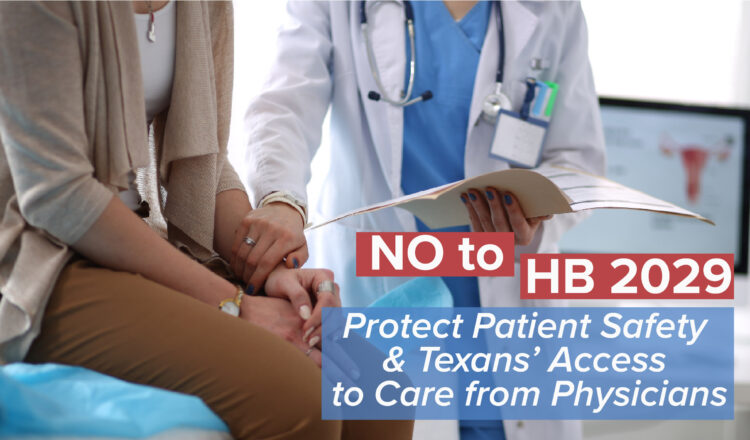HB 2029, legislation that hands unsupervised practice authority to nurse practitioners, is going to be heard by the Texas House Committee on Public Health on March 24, 2021.
Please take a moment to stand up for patients and ask the committee members to oppose HB 2029.
There are two important action steps we ask you to take:
1) Send an individualized message to each committee members with one click at the following link: https://p2a.co/vL9xs3r.
2) Submit an official statement for the hearing at:
https://comments.house.texas.gov/home?c=c410
For item 2, you will need to select HB 2029 from the list of bills. Here is a statement you can copy and paste, and customize to your liking:.
Please oppose HB 2029. Increasing patient access to high quality primary care is crucial, but HB 2029 will not accomplish this goal. If passed, the bill will hand insurers, and other bureaucrats, another tool to cut corners and degrade the quality of medical care patients receive. Instead of deeming lesser trained practitioners to be on par with physicians, there are better options, that increase the supply of physicians, like bills being considered in other states to address a growing shortage of training positions for medical school graduates.
Thank you for speaking out. Your voice makes a difference!
What would be a better path? Increasing the number of physicians.
Nationwide, the physician shortage is exacerbated by a deficit of residency program slots for medical graduates. Approximately 8,000 applicants per year to U.S. residency programs currently fail to obtain a match after graduating from medical school.
A complete resolution to the lack of training spots means tackling a number of flawed federal policies, but in the meantime there are important state-based solutions that can be implemented to help.
One exciting proposal, Arizona’s SB 1271, would allow unmatched medical school graduates — with a degree of MD or DO and who meet a few other criteria — to train and practice in certain medical care settings in the state, under the supervision of, and in collaboration with, licensed physicians. Missouri has led the way by becoming the first state to implement this program, and it is enhancing patient care in the state.
Texas should consider legislation like this too so these medical school graduates have an opportunity start on their post graduate training. In addition, Texas patients will gain expanded care options from MDs and DOs.
“At the point of certification, a new nurse practitioner has acquired between 500 and 1,500 hours of clinical training, fewer than a third-year medical student,” reports the Primary Care Coalition. Medical school graduates, by comparison, on average complete 6,000 hours of such training by the end of their 4th year. So allowing MD and DO medical graduates the ability to have limited practice opportunities is a common sense step Texas can and should take as soon as possible.
For more background information on the scope of practice issue, see Physicians for Patient Protection, https://www.physiciansforpatientprotection.org/does-science-support-np-independence.




